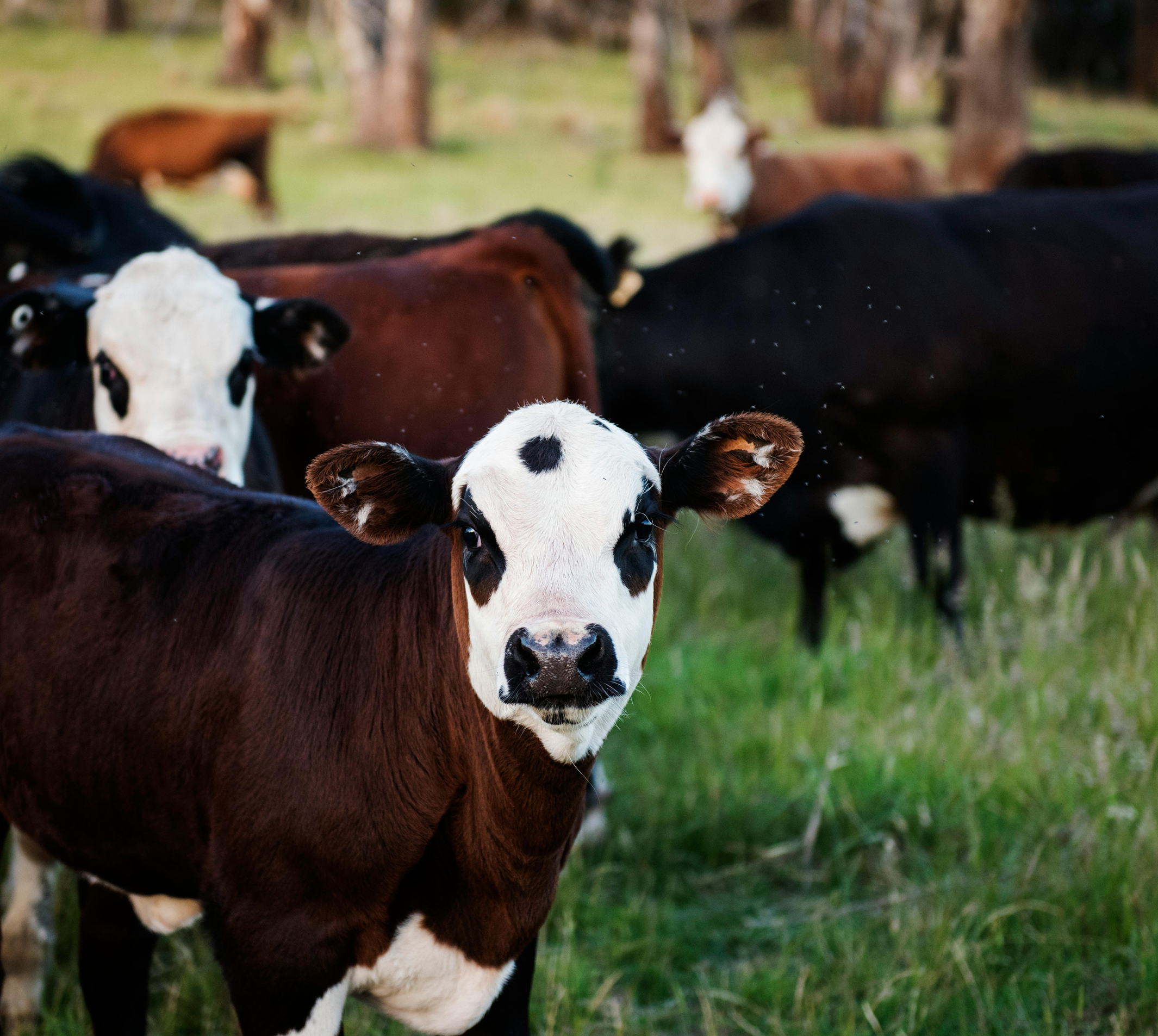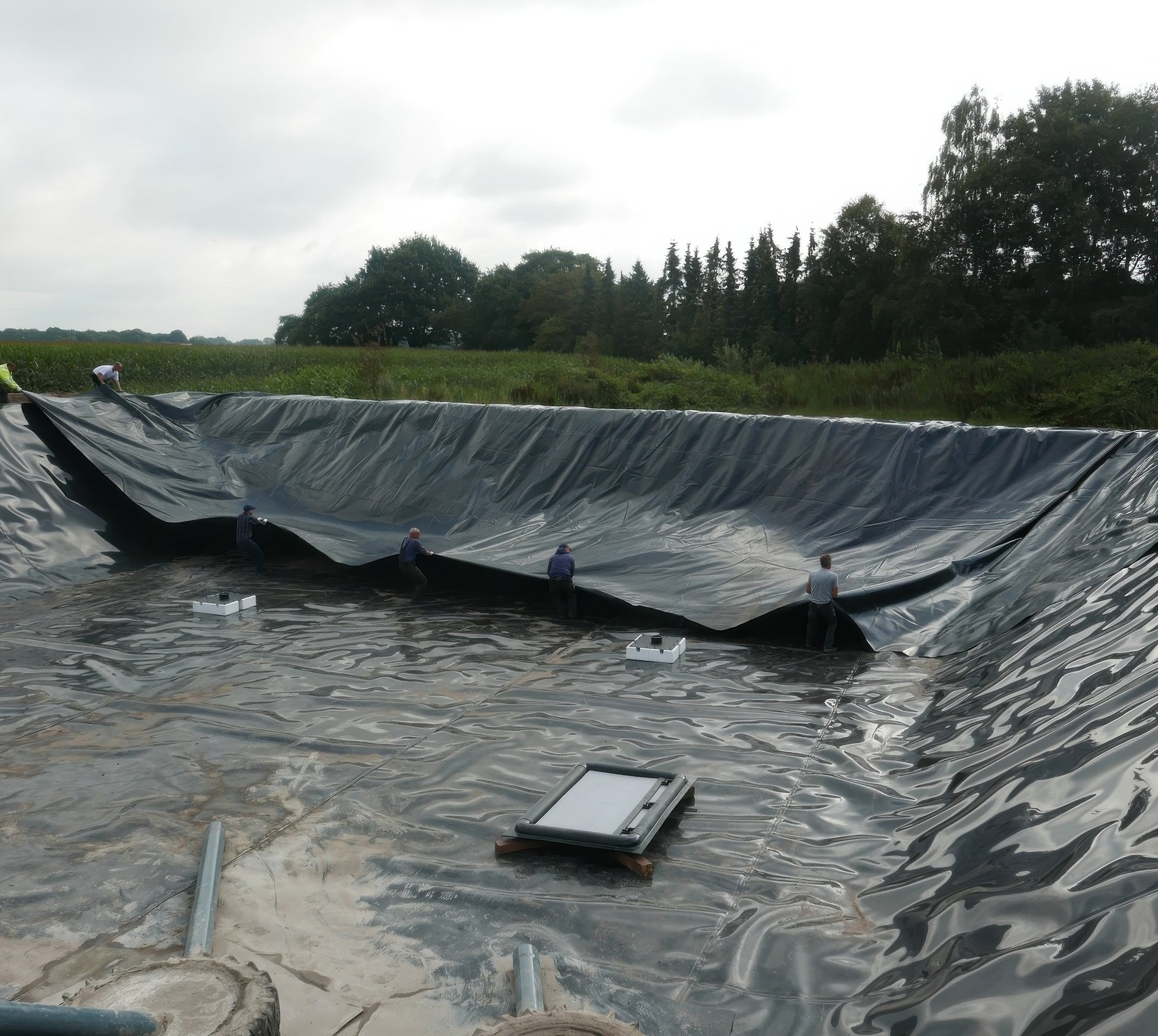Leaky storage creates environmental and financial risks
Manure is a valuable resource in agriculture, but only when it is kept contained and managed. If storage basins or lagoons leak, they can pollute groundwater, harm nearby ecosystems, and invite costly fines. Even minor seepage can turn into a major liability over time, as contaminated water spreads beneath the surface. The structural integrity of the basin itself may also be compromised if low-quality liners degrade or tear. Frequent repairs, combined with the potential need to relocate or rebuild an entire storage site, quickly increase costs.
Leaky storage creates environmental and financial risks
Manure is a valuable resource in agriculture, but only when it is kept contained and managed. If storage basins or lagoons leak, they can pollute groundwater, harm nearby ecosystems, and invite costly fines. Even minor seepage can turn into a major liability over time, as contaminated water spreads beneath the surface. The structural integrity of the basin itself may also be compromised if low-quality liners degrade or tear. Frequent repairs, combined with the potential need to relocate or rebuild an entire storage site, quickly increase costs.
.jpeg)
.jpeg)

.jpeg)
.jpeg)

Manure storage liner – durable containment for safe, long-term use
Leaky storage creates environmental and financial risks
Manure is a valuable resource in agriculture, but only when it is kept contained and managed. If storage basins or lagoons leak, they can pollute groundwater, harm nearby ecosystems, and invite costly fines. Even minor seepage can turn into a major liability over time, as contaminated water spreads beneath the surface. The structural integrity of the basin itself may also be compromised if low-quality liners degrade or tear. Frequent repairs, combined with the potential need to relocate or rebuild an entire storage site, quickly increase costs.
.png)
While some operations attempt to use basic plastic sheeting or less robust materials, those options often fail when exposed to harsh chemicals in manure. Acids and other compounds can weaken liners that are not chemically resistant, leading to cracks or pinholes. When the liner fails, farms face not only regulatory scrutiny but also the immediate problem of containing and handling the overflow.
Secure containment protects resources and the environment

An effective liner ensures that nutrients in manure remain accessible for field application without leaching away. That allows farmers to optimize fertilizer use and reduce purchases of synthetic alternatives. Additionally, proper containment assures regulatory bodies and local communities that the farm is taking a responsible approach to waste management. Maintaining compliance with environmental standards keeps operations running smoothly and avoids expensive legal complications.
A strong liner also promotes long-term cost-effectiveness. When a basin remains structurally sound, operators spend less on emergency repairs, downtime, or fines. By safeguarding manure for use as fertilizer, they conserve resources and can better plan nutrient distribution schedules. Safe, odor-managed storage also improves relations with neighbors and maintains a positive community reputation.
Leaky storage creates environmental and financial risks
Manure is a valuable resource in agriculture, but only when it is kept contained and managed. If storage basins or lagoons leak, they can pollute groundwater, harm nearby ecosystems, and invite costly fines. Even minor seepage can turn into a major liability over time, as contaminated water spreads beneath the surface. The structural integrity of the basin itself may also be compromised if low-quality liners degrade or tear. Frequent repairs, combined with the potential need to relocate or rebuild an entire storage site, quickly increase costs.
Secure containment protects resources and the environment
An effective liner ensures that nutrients in manure remain accessible for field application without leaching away. That allows farmers to optimize fertilizer use and reduce purchases of synthetic alternatives. Additionally, proper containment assures regulatory bodies and local communities that the farm is taking a responsible approach to waste management. Maintaining compliance with environmental standards keeps operations running smoothly and avoids expensive legal complications.
A strong liner also promotes long-term cost-effectiveness. When a basin remains structurally sound, operators spend less on emergency repairs, downtime, or fines. By safeguarding manure for use as fertilizer, they conserve resources and can better plan nutrient distribution schedules. Safe, odor-managed storage also improves relations with neighbors and maintains a positive community reputation.

.jpeg)
.jpeg)

.jpeg)
.jpeg)
.jpeg)
.jpeg)
.jpeg)

How NICOLON HSPO liner ensures reliability
NICOLON HSPO (High Strength Polyolefin) liners combine flexibility with reinforced polyester fabric to handle the chemicals and stress associated with manure storage. These liners are ISO 9001-certified and meet KIWA BRL 546 standards, indicating they have undergone rigorous testing for chemical resistance and durability. They are also made without softeners, ensuring environmental safety during installation and use.
HSPO liners rely on secure welding with hot air or a welding iron, forming leak-proof seams that can handle wide temperature ranges. Because they are supplied in large, consistent sheets, they minimize the number of seams that could potentially fail. Once installed, the liners resist UV exposure, microbial degradation, and physical wear from agitation systems. Farms using HSPO liners typically enjoy many years of reliable service, with less worry over cracks or seepage.




Key benefits
Reinforced polyolefin construction
Provides high biaxial strength and flexibility
Chemical resistance
Stands up to acids, oils, and other harsh substances in manure
UV-stable design
Endures sun exposure over long periods
Leak-proof seams
Welding forms durable joints resistant to shifting and temperature changes
Wide temperature range
Suitable for installation in colder climates (down to 5°C)
Eco-friendly
Made without harmful softeners, ensuring safer handling and disposal
.png)


